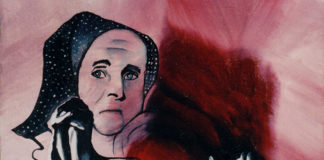Tag: women’s oppression and psychiatry
The Science and Pseudoscience of Women’s Mental Health: Conversation with Kelly...
A conversation with Dr. Kelly Brogan, a leading voice in natural approaches to women’s mental health. With degrees from MIT and Weil Cornell Medical College, triple board certification in psychiatry, psychosomatic medicine and integrative holistic medicine, Dr. Brogan is uniquely qualified to challenge the pseudoscience of the chemical imbalance theory and the drug regimens that it spawned.
I Navigated the Mental Health System and Never Took Medications
I kept thinking, why was I the one to be labeled when my husband was doing all this unhealthy, violent stuff? I sought out doctors through health food stores and communities that didn’t believe in medications for a social and family problem. That way no controlling, pill-pushing medical doctor had authority over me.
The Female Subject in Psychiatry From Pathology to Prozac
In this piece for The New Inquiry, Sophie Putka chronicles the mental health profession's long history of pathologizing, diagnosing, and medicating women's emotions.
"With Freud’s claims...
How Victorian Women Were Oppressed Through Psychiatry
From The Atlantic: In the mid- to late 1800s, psychiatric institutions were used to oppress women and reinforce patriarchal norms. The new Netflix show Alias Grace, based...
Testimonial Injustice and Borderline Personality Disorder
From The Huffington Post UK: The diagnosis of Borderline Personality Disorder frequently serves to invalidate the trauma of women who have experienced abuse.
"‘BPD’ is so...
Gender Wage Gap and Depression/Anxiety
When women receive less pay than men for the same work, they were about two and a half times more likely to "have major depressive disorder," and about four times more likely to "have generalized anxiety disorder" than their male counterparts. But when women were earning more than men, the odds were 1.2 and 1.5 respectively. The use of psychiatric terminology ("major depressive disorder" and "generalized anxiety disorder") constitutes something of a barrier to communication here, but the general message is clear: people (in this case women) who are routinely treated unfairly and discriminately are more likely to be depressed and anxious, than those not so treated.
Ritalin Used to be “Grandma’s Little Helper”
Eugene Raikhel reveals ads from 1966 where Ritalin, now prescribed largely for ADHD, was marketed as a “kind of mind antidepressant for housewives.” “I...














